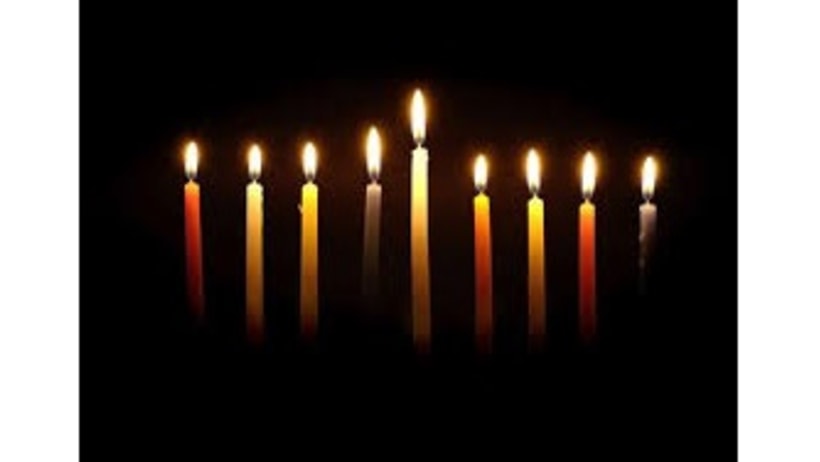Oasis Songs: Musings from Rav D
Friday, December 11, 2015 – 29 Kislev, 5776
Our multiple community Hanukkah parties this week have been a great deal of fun, and I was glad to see so many people from our Neveh family in attendance at these gatherings. So many people contributed, from Koleinu, to our hard-working professional and catering staffs. It would be impossible to thank and ackowledge each person, but I know we all feel grateful for the As our Hanukkiot (Hanukkah menorahs) gather more candles, the cheer of this time is evident. Let me wish you and your friends and families a joyous conclusion to our Festival of Lights.
Tomorrow night I head to New York for a professional conference. I look forward to the high level learning I’ll get to engage in at JTS, and will see you next Shabbat.
Most of us know that the winter solstice is the shortest day of the year. Tonight, however, is Rosh Hodesh Hanukkah, and each new Jewish month is marked by a new moon. So between the short day and a dim night sky, tonight may well be the darkest night of the year. This is the case each year, and many sermons have been given about how the lights of Hanukkah can brighten our way.

I’ve been thinking about the darkness before the light. The other day I had a conversation with one of our bat mitzvah students, and we got to speaking about dystopian fiction, one of her favorite genres (thank you, Orly!). Young adult book series like Divergent, The Uglies, and many others explore repressive regimes and dark worlds in which the possibilities of life and of human potential are highly curtailed, and in which the powers of the individual are limited by larger external forces. This genre of literature has proved remarkably popular with both teens and adults. I myself found the three books that comprised the Hunger Games to be compelling storytelling.
Many people have weighed in on why dystopian fiction speaks so forcefully to us. One teen blog I discovered proposed that being an adolescent is very much like living in one of these worlds, because society dictates so much of what they can and can’t do. I’m not sure how different that is for many adults, which may explain the cross-over appeal. These books describe what life is like for many people, or alternatively, make us feel better because things aren’t so bad in our own time.
But if many adults also feel powerless and overwhelmed, is the significance of Hanukkah diminished? Do our Hanukkah celebrations seem a bit trite because they don’t seem to have the same weight and spiritual significance of Yom Kippur? I don’t think so…
My second trip to Israel was on a teen tour; I was sixteen. We spent a lot of time hiking and climbing and exploring Israel’s great outdoors. One of our hikes took us to narrow chalk caves that we could only enter by crawling. This emptied out into a large cavern lit only by a lantern. Our guide sat us in a circle, made sure we were all safely situated, and then he turned off the lantern. In the total blackness of the cave, he proceeded to tell us the story of Hanukkah. For those very caves, according to some historians, were a stronghold for the Maccabees in their struggles against the oppressive regime of their age. Huddled beneath the ground, we could imagine their fear, their sense of desperation and resistance. We learned how our ancestors were smoked out of their hiding places, then met the sword as they rushed to the surface for air.
When our guide turned the light back on, we slowly scampered out of the cave and into the blinding sun of an Israeli mid-summer day. We breathed deep, grateful there were no armed enemy soldiers waiting for us at the entrance. And that brings us back to dystopian fiction, the power of the Hanukkah lights, and purposeful celebration.
Just as at a Jewish wedding, where we break a glass to remind us that not all of life is joyous, dystopian fiction (and the equally gruesome history of our people) can heighten the gratitude and joy we have for our better times. More importantly, if we will it, these happy memories can provide us the courage to change our own community for the better. In the words of that classic American folk song, “Don’t let the light go out, it’s lasted for so many years.”
Enjoy these final days of Hanukkah. I’ll see you on my return,



